Israel: Even Covid-19 won’t deter this dairy farm’s plans
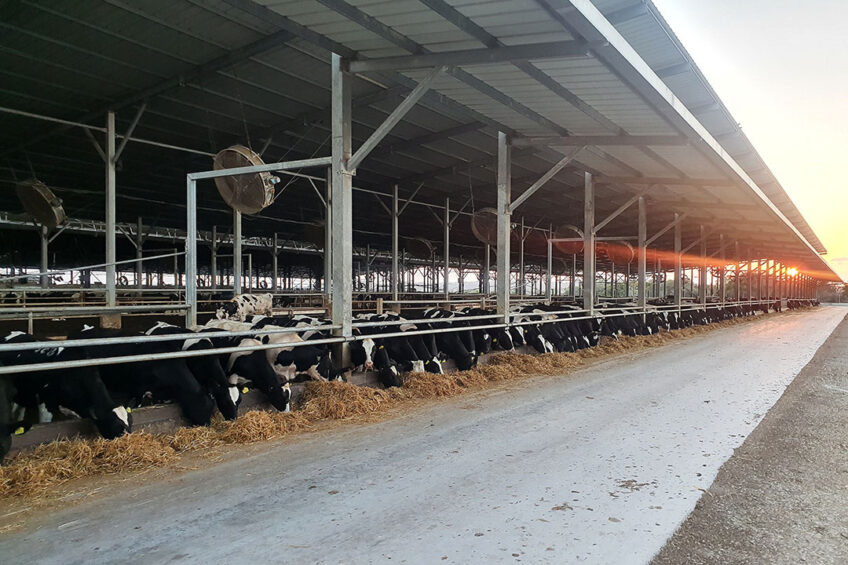
Classed as essential workers the staff at one of Israel’s leading dairy farms have ensured the cows are milked daily even though some of them tested positive for Covid-19 and had to isolate.
 Located in the north of Israel, Ramot Menashe dairy farm is home to around 1,000 animals including a milking herd of 500 cows, 450 heifers and 50 young calves.
Located in the north of Israel, Ramot Menashe dairy farm is home to around 1,000 animals including a milking herd of 500 cows, 450 heifers and 50 young calves.Nestled at the edge of the Carmel Mountains the farm extends to just 3 hectares and was founded in 1948 by a group of Jewish pioneers from South America as part of the Kibbutz settlements programme.

In Israel the milk production is planned and controlled by the government. Every farm has a yearly quota to produce milk for a dairy of its own choice and the price is set and adjusted quarterly. The overall milk quota in Israel is 1.5 billion litres, with a farm average each of 4 million litres. The price for 2020 was set at 1.92NIS (New Israeli Shekel) or UK£0.44 per litre.
During the Covid-19 era Ramot Menashe dairy farm has been very busy under the watchful eye of farm manager Edo Peleg, 42, and has plans to expand.
Edo, who has worked on the farm for the past 20 years, including last ten as manager, said: “The cows on the farm are mainly Holstein each producing 12,500 litres per lactation of 305 days, averaging 41 litres per day at 3.4% protein and 3.9% butterfat.
“They are divided in groups of 70-80 cows according to lactations and milked three times every day in a 44 unit Allflex parallel milking parlour.
“According to the environmental laws in Israel milking cows are kept in closed barns and are not allowed to graze outdoors. With that in mind we make sure the barns are sufficient in size and comfort for the animals.

“We allow 25 square metres of bedding per cow, one metre of feeding space each and 25cm of drinking space. Our barns have convertible roofs which we use for air ventilation during the night in the summer and for drying the bedding during sunny days in the winter.
“The solid manure is stored during the winter and applied to the nearby fields as compost during the summer, whilst the liquid sewage is treated and used for irrigation of avocado plantations.
Covid-19: Impact on the global dairy sector The coronavirus has had a huge impact on daily life from the man on the street to businesses. And the dairy sector, even more essential than ever, has not gone unscathed. Keep up-to-date…
The coronavirus has had a huge impact on daily life from the man on the street to businesses. And the dairy sector, even more essential than ever, has not gone unscathed. Keep up-to-date…
AI and feed on farm
“We use a Total Mixed Ration produced on the farm to feed the cows using a self-loading, self-propelled feeder wagon three times a day. We have access to fields around the farm owned by the Kibbutz that grows corn and wheat silage, wheat hay, straw and alfalfa.
“The other ingredients for the ration are bought through a buyer from 5 or 6 main importers. A nutritionist plans the ration and adjusts it to the market prices and needs of the herd once a month,” says Peleg.
This farm uses semen from the top bulls in Israel and has also started using sexed semen to build up heifer numbers in the herd.

Peleg adds: “We use artificial insemination working with Sion, which is Israel’s artificial insemination and breeding company owned by the dairy farmers. The bulls are selected from a variety of top Israeli bulls or from imported semen.
“In the last 3 years we are using sexed semen on the maiden heifers and by that we are achieving 75% females in the herd and easy calvings.
“Veterinarian services are provided by another company owned by the farmers called Hachklait. At the moment we have 2 scheduled vet visits during the week and a vet on standby 24 hours per day for emergencies.
“We have 8 full-time staff on the farm including a feeding manager, maintenance manager, health and fertility manager, calves manager plus 4 milkers.
“Besides the permanent staff, we employ 8 to 10 children aged 14 to 18 from the Kibbutz to help out on the farm during the weekends and vacations from school.
“This allows them to earn some money but more importantly to learn values such as responsibility, diligence, friendship and caring for animals. The farm offers them a second home and they are welcome to come whenever they want. Actually some of them return later in life during university, between jobs or as a permanent staff,” he adds.

Technology for efficiency
Peleg is investing in new technology on the farm to increase the efficiency and reduce labour costs using a number of different products.
“We try to bring new technologies onto the farm to improve results and efficiency,” he said. “Right now we are using automatic manure scrapers in the barns, convertible roofs, ventilation and fogging systems to control the wheatear, and a milk taxi for feeding calves.
“The farm is covered with cameras and most of the systems can be controlled from afar online. The main technological support is given by Allflex as we use their neck collars on every cow and heifer from the age of 12 months to identify them.
“These also monitor the milk quantity and quality, daily activity, rumination and general health in the herd.
“In the future we plan to expand up to 7 million litres production and we are currently in the middle of building another dairy farm on a neighbouring Kibbutz providing it with all the necessary services such as feeding, milking and managing.
“In addition to that we are investigating producing a unique line of dairy products straight from the farm so that we can control all of the value chain, according to the latest trends of farm to fork,” he says.

Covid-19, business as usual
Like every other country Covid-19 also hit Israel but its business as usual for Peleg and his team, albeit with a few changes.
“Like the rest of the world we are dealing with Covid-19,” Peleg says. “Agriculture is classified as vital services in Israel and therefore we’re operating the farm almost as usual.
“We had one employee tested positive last month which led to isolation of the entire staff for 2 weeks. However, thanks to their dedication we decided to spend the isolation on the farm and turned it to a positive and productive experience,” he adds.
 Beheer
Beheer

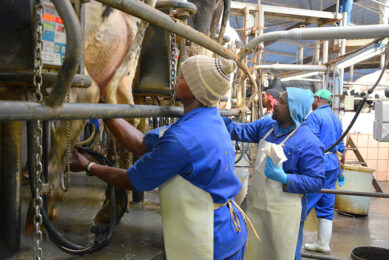
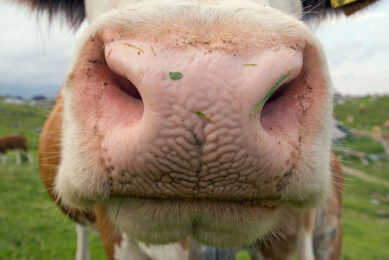
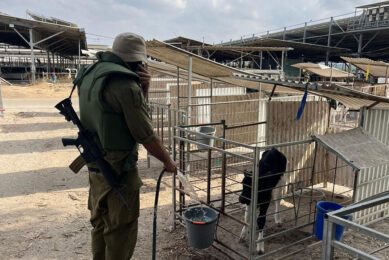
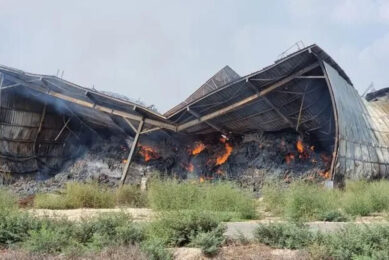
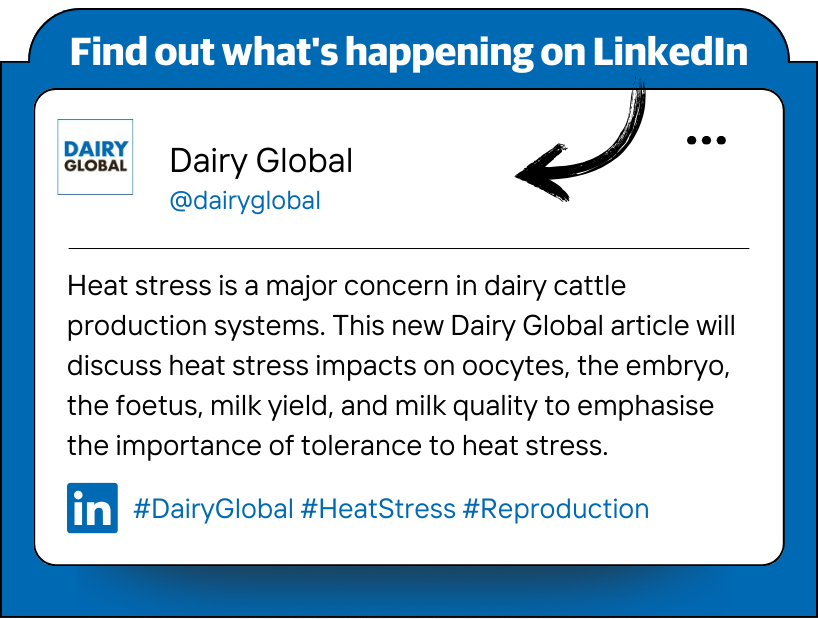



 WP Admin
WP Admin  Bewerk bericht
Bewerk bericht